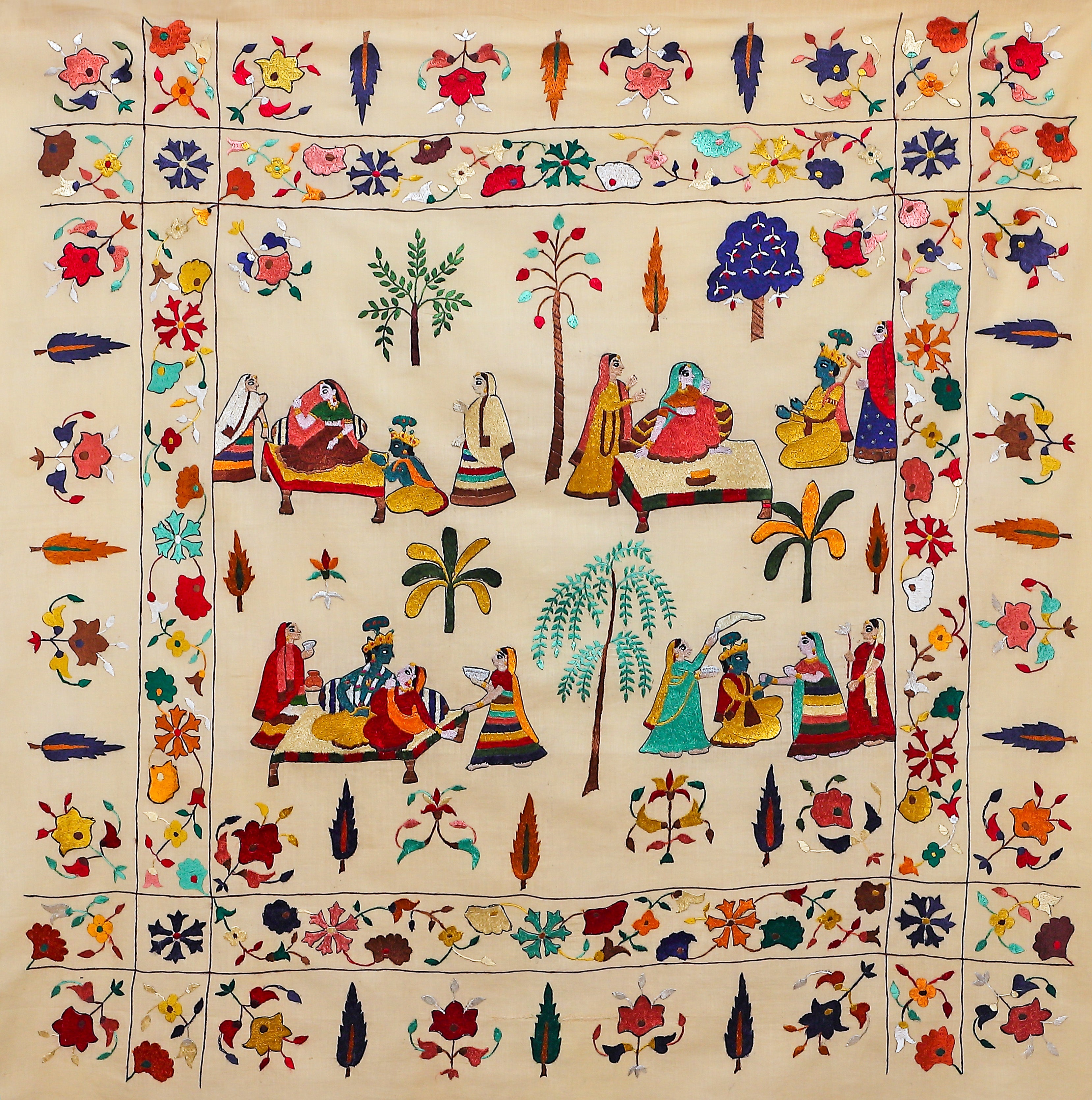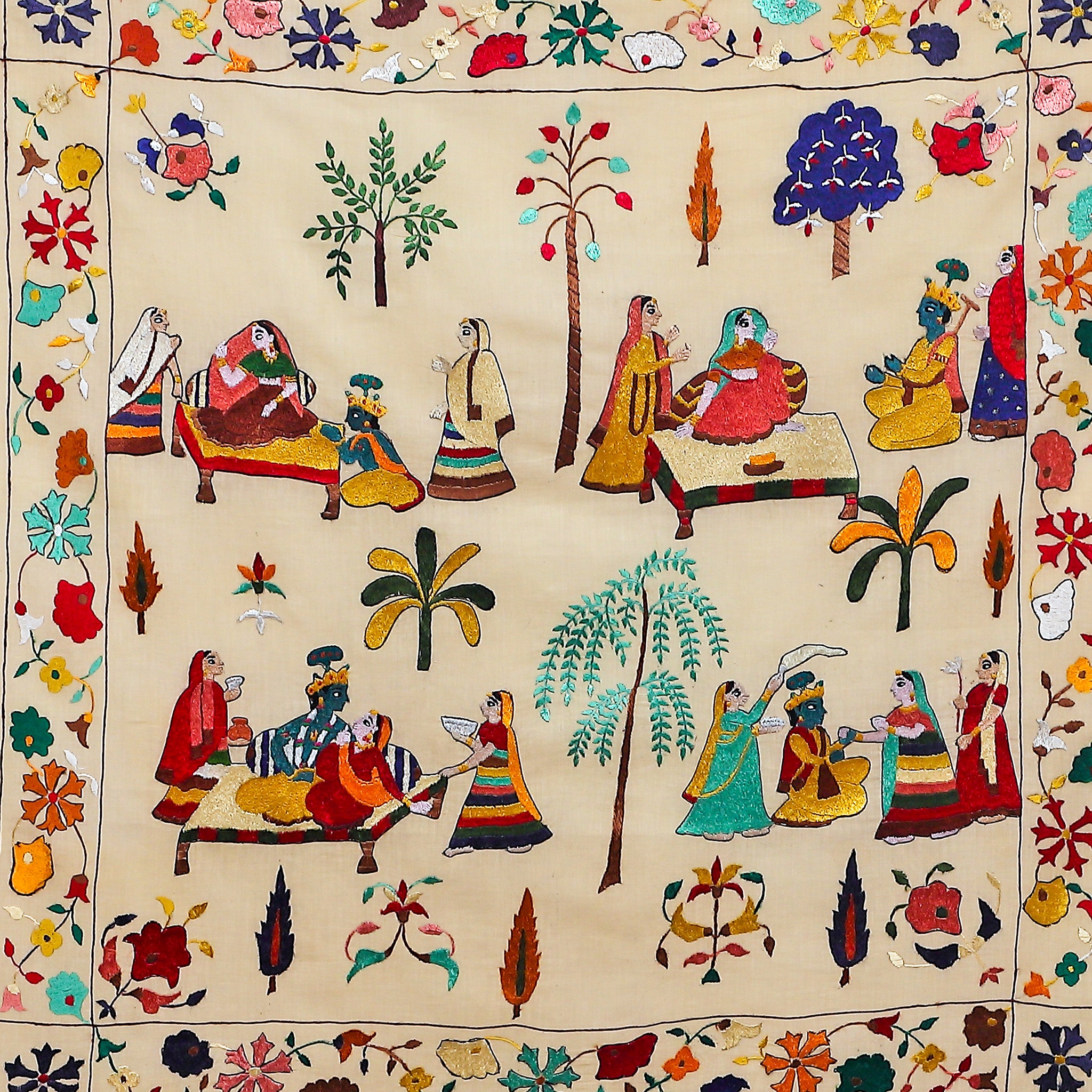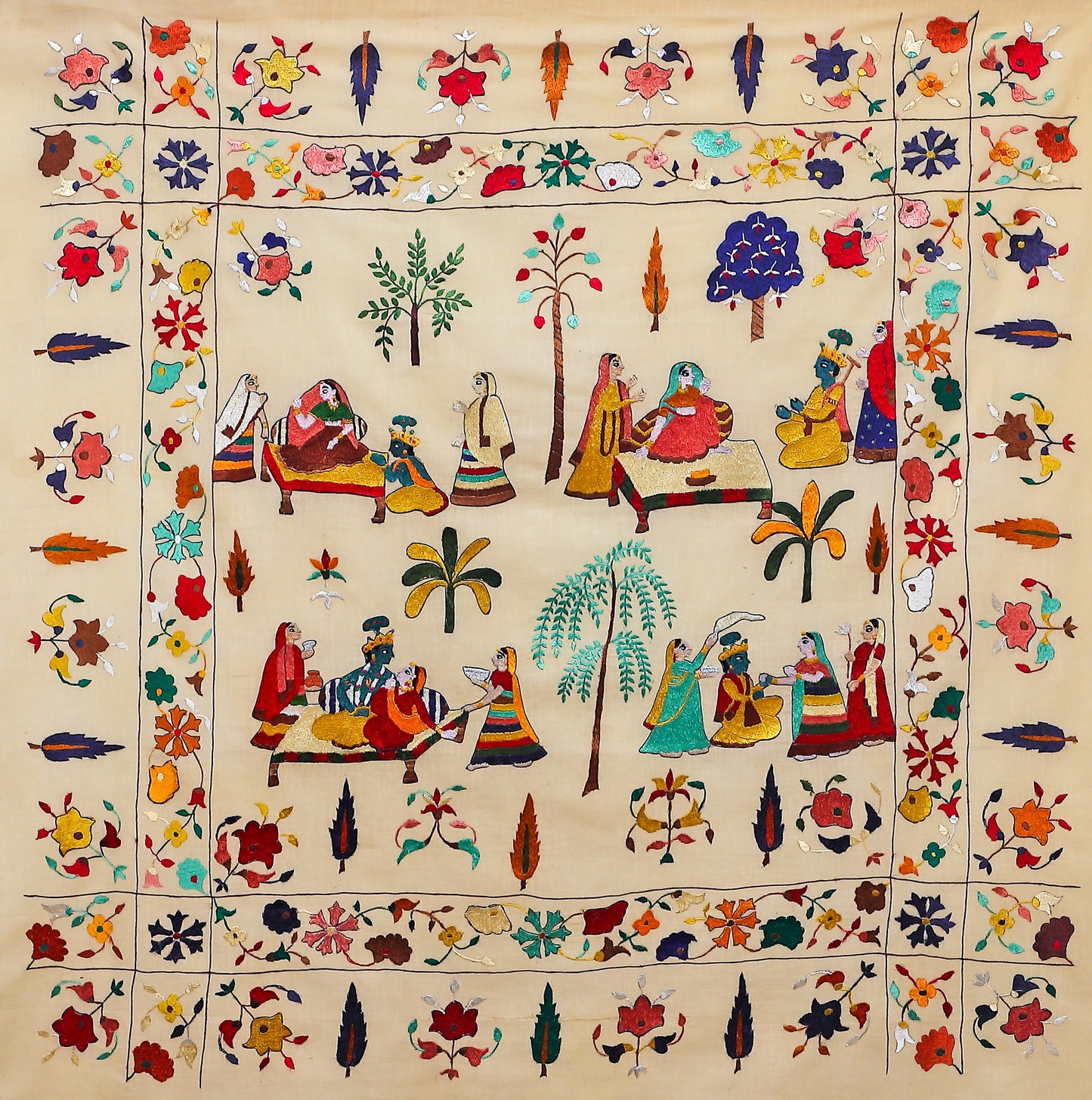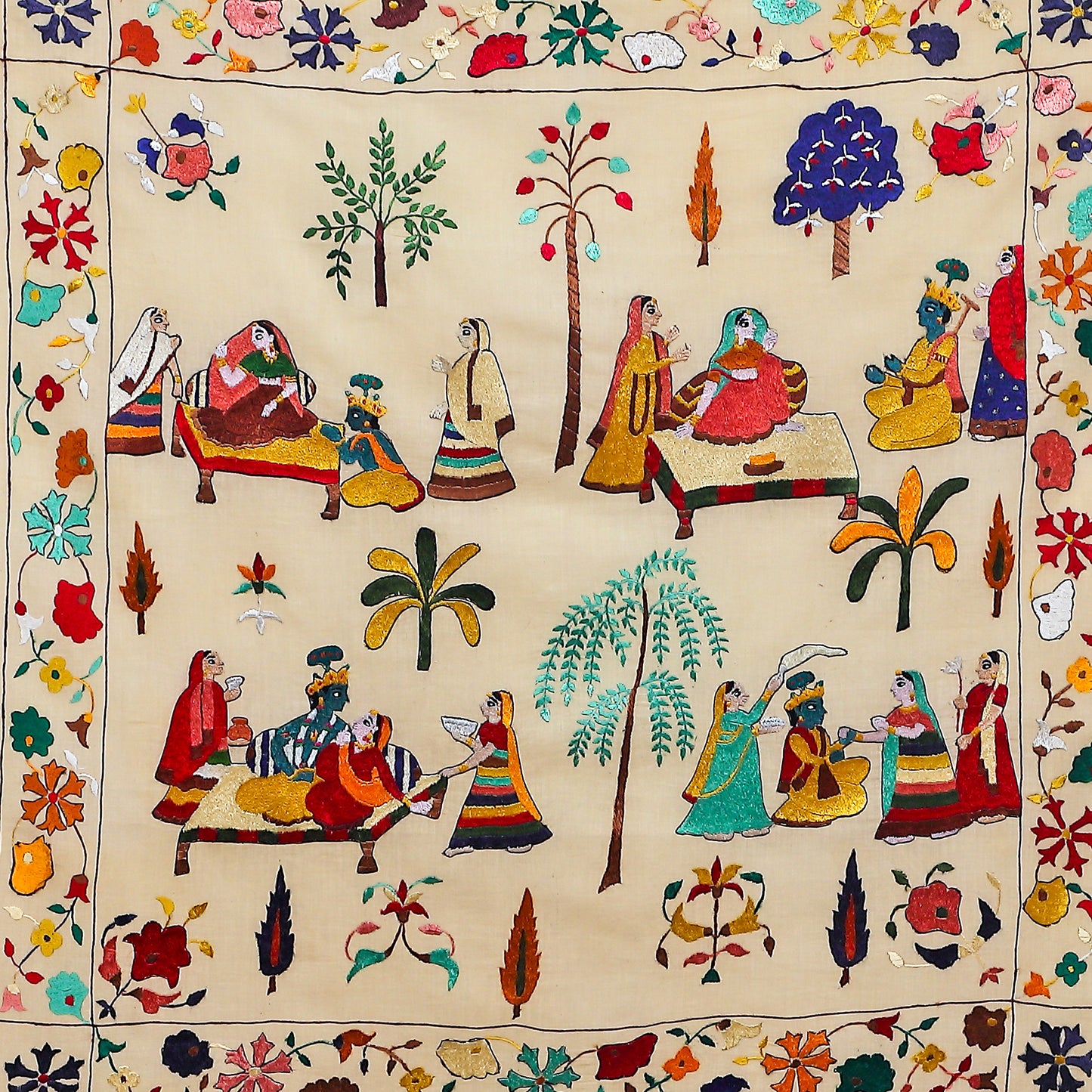



Nayika Bhed
Couldn't load pickup availability
Details
Artform
Chamba Rumal, Himachal Pradesh
Artist
Lalita Vakil
Dimensions
42 x 42 Inches
Medium
Embroidery on Cotton Cloth
Framing
Unframed
Learn More
The Painting
"Padma Shri Lalita Vakil's Nayika Bhed is a vibrant tapestry woven from threads of love, longing, and the delicate nuances of the female experience. This captivating Chamba Rumal embroidery, rendered on cotton cloth, delves into the eight classifications of Nayikas (heroines) in Indian classical literature, each embodying a distinct facet of love and womanhood. At the center of the composition, eight female figures, their faces expressive and postures graceful, radiate outward from a central point. Each Nayika is adorned with vibrant attire and distinct symbols that reflect her unique characteristics. The Abhisarika, the bold heroine who ventures out to meet her lover, clutches a lamp and wears fiery red, while the Swadhinapatika, the independent woman, stands tall with a confident gaze. The Vasakasajja, the woman pining for her absent lover, sits amidst wilting flowers, her expression one of melancholic longing. Surrounding the central figures, a verdant paradise unfolds. Lush green foliage, embroidered in delicate stitches, creates a tranquil haven, reminiscent of the idyllic settings often associated with romantic poetry. Delicate birds, their plumage shimmering with color, flit amongst the leaves, adding a touch of whimsy and movement to the scene. In the distance, snow-capped peaks pierce the azure sky, anchoring the composition with a sense of grandeur and timelessness. The borders of the Rumal are adorned with intricate floral motifs and geometric patterns, echoing the vibrant hues and delicate stitching of the central scene. The use of double-sided do-rukha stitching, a hallmark of Chamba Rumal embroidery, adds depth and texture to the artwork, blurring the lines between observer and participant. Each meticulously placed stitch contributes to the overall harmony and richness of the composition. "
The Artform
"Chamba Rumal is a traditional textile art form that originated in the Chamba region of Himachal Pradesh, India in the 18th century. Renowned for its exquisite craftsmanship, this art form revolves around the creation of intricately embroidered handkerchiefs or rumals. The delicate embroidery mostly done on square pieces of silk or muslin cloth typically features vibrant colors, intricate floral patterns, and mythological motifs. The artists employ a unique technique called do-rukha or double-sided embroidery, where the designs are embroidered on both sides of the fabric, resulting in a reversible and equally captivating piece of art. Despite losing its royal patronage during Indian independence, the tradition continued passing down through generations, with artists meticulously preserving and enriching the heritage. With its revival in the 1970s, these rumals now often depict scenes from Hindu mythology, local folklore, and nature, showcasing the rich cultural tapestry of the region. The art form not only serves as a testament to the dexterity of the craftsmen but also reflects the deep cultural roots and artistic sensibilities of the Chamba community. Today, Chamba Rumals are not just utilitarian items but revered pieces of art that exemplify the fusion of skill, tradition, and aesthetic beauty. "
The Artist
"Lalita Vakil is an Indian embroidery artist known for her contributions to the preservation and promotion of Chamba Rumal. Vakil was awarded Padma Shri in 2022 by the Government of India for her contributions to the field of arts. She was also awarded the Nari Shakti Puraskar in 2018. While working on small pieces of square cloth in the art and craft class at school where she first learned the embroidery technique of Chamba rumal, Lalita Vakil was then only a teenager. Lalita recalls how her father-in-law, a native of Chamba, recognized her latent and intricate designs on chamba rumal and told her to train local girls and women, who could also make their livelihoods from embroidery. This also helped her in the drive to revive the dying art. Lalita has trained hundreds of women, a few of them in their third generation. "
Provenance
The painting has been created by Bridge Bharat’s master artist partners.
Customizations
"Want a unique artwork for that wall at home- one that resonates entirely with you? Please use the WhatsApp chat below or email us at aakanksha@bridgebharat.com to discuss your requirements with our team. "
Returns and refunds
Returns are not applicable on made-to-order products. We guarantee a replacement of your product in case of any damages.
Shipping and Delivery
"For artworks that are made to order, the time to prepare each piece differs. Our team will inform you about the preparation time. You will receive updates on the behind-the-scenes prep every 4-5 days- we want you to be a part of the creation process. A ready item will be dispatched within 24 hours of placing the order. The item will be delivered 7-10 days after the product is dispatched. The artwork price is exclusive of shipping charges and insurance. Shipping charges will differ depending on the order size, weight and delivery location. You will be able to calculate shipping charges at checkout. The artwork price is inclusive of 12% GST In the event that the product is rejected by our quality check team, you will be informed about the change of delivery date. "
Other details
"The price you see is for an unframed painting. If you want us to custom frame the artwork, please drop us a message. We highly encourage this, framing is an art by itself :) The artwork you will receive is as close to the original artwork as possible but as with all things handmade, there may be minute differences in color and motifs, truly rendering each artwork one of a kind. Trust the process! "


.png?v=180585433461421961291732270581)
















